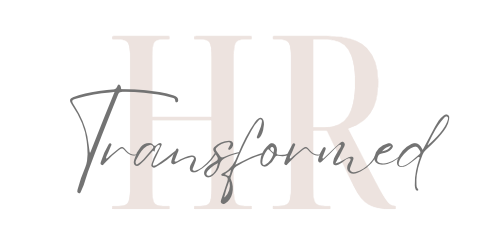What The Dallas Cowboys Cheerleaders Just Taught Us About Pay Equity & Employee Advocacy
Written by: Sara Stone
When veteran Dallas Cowboys Cheerleader Jada McLean said, “My legacy will be the money,” she wasn’t just dreaming of a bigger paycheck. She was planting a flag for herself, her teammates, and every underpaid woman performing at the highest level.
After years of smiling through second jobs and under-the-table gigs, America’s Sweethearts finally secured a game-changing 400% raise. It wasn’t luck. It was advocacy, strategy, and the right story told at the right time.
This isn’t just pop culture, it’s an HR wake-up call.
Why the Cheerleaders’ Raise Matters to Business Owners
The first season of America’s Sweethearts: Dallas Cowboys Cheerleaders aired on June 20, 2024, and pulled in 2.3 million views globally in just four days. Their now-iconic “Thunderstruck” routine even became a viral dance challenge. Viewers quickly fell in love with the small-town girls chasing their dreams, and with Kelli and Judy’s deep care for the team.
But it shocked many to learn that these women were among the lowest-paid employees in the entire NFL, despite being front and center on game day.
It was heartbreaking to watch how hard they worked to make the team, only to struggle financially. The NFL, after all, generated $23 billion in revenue last fiscal year. So as the spotlight grew brighter, the cheerleaders took their shot. They pushed for better pay and finally got it.
Employee Advocacy in Action: What Leaders Can Learn
Season 2 of the docuseries captures that journey, especially the efforts of internal leaders who spoke up to HR and legal teams. We see the cheerleaders sit down with the Cowboys’ HR and legal teams to raise real concerns, concerns that should resonate with anyone heading into a raise negotiation. Despite their popularity, driving bookings and revenue for the franchise, they were earning roughly $15 an hour on game days. The team didn’t increase wages that season, but thanks to relentless internal advocacy, they recently announced a 400% raise for the upcoming season.
Much of that progress is thanks to leaders like Jada, who opened up about the challenges she faced, including nearly being evicted. Her courage made a difference.
The ROI of Listening to Your Team
So, why does this matter from an HR perspective?
Because equity speaks louder than perks.
Sure, the cheerleaders received free services and sponsorships thanks to Kelli’s efforts. But at the end of the day, what they really needed was livable, respectful compensation.
We also saw a shift in mindset. That familiar phrase, “Why change it? It’s always been this way,” doesn’t cut it anymore. People were still lining up to audition, yes, but the writing was on the wall. Interviews in the docuseries made the pay gap painfully clear. And when the story went public, it changed everything.
Storytelling and visibility have become game-changers in wage negotiations. With growing momentum around pay transparency laws in states like New York and New Jersey, and viral horror stories about how companies treat employees, business practices are being brought into the light. And that light is shaping consumer behavior and employer brand perception more than ever.
What Happens When You Don’t Listen?
What should business leaders take away from this?
We know it sounds like a broken record, but here it is again:
Listen to your employees.
Most people speak up internally before going public (especially if you provide an anonymous method for giving feedback). Make sure they feel heard.
Connect your brand image to how you treat your employees.
Strengthen your communication channels.
And most importantly: show your employees you care.
Need a Hand Leveling Up Your Team Spirit?
At HR Transformed, we believe culture and compensation go hand in hand. Whether you’re ready to rethink your pay structure, build stronger employee advocacy, or just want a better way to retain top talent, we’re here to help.
Let’s build workplaces where everyone feels seen, heard, and valued.
👉 Get in touch with us today to start rewriting your own playbook.



